-
-
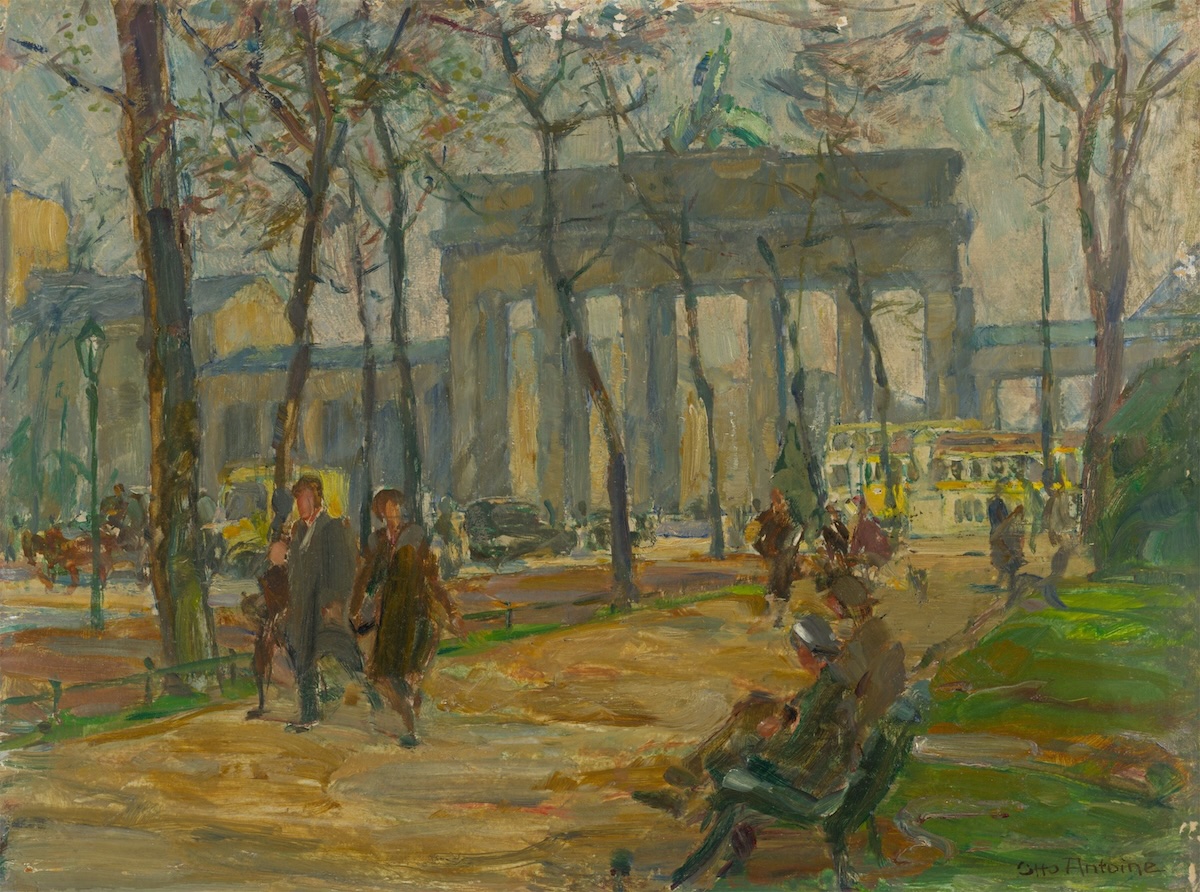
Otto Antoine (1865-1951): “The Painter of Berlin” between Compliance and Defiance
ONLINE VA, United States
Presentation by Kathleen Langone and Q&A with Jacquelyn Delin McDonaldKathleen Langone speaks about the German born painter Otto Antoine (1865-1951), followed by a conversation with Jacquelyn Delin McDonald from the University of Texas at Dallas. Image above: Otto Antoine, Brandenburg Gate, 1928. Oil on cardboard Antoine displayed an early artistic talent but, due to economic circumstances, started a long-term career as a civil servant, initially as a clerk at a local post office. His drawing abilities were soon recognized, and he increasingly was used as a painter, engraver and designer of stamps for the German postal service. They also sent him to many far-flung places outside of Germany (such as Africa) to paint bucolic landscapes of those countries, which were used to promote their [...]
Free -
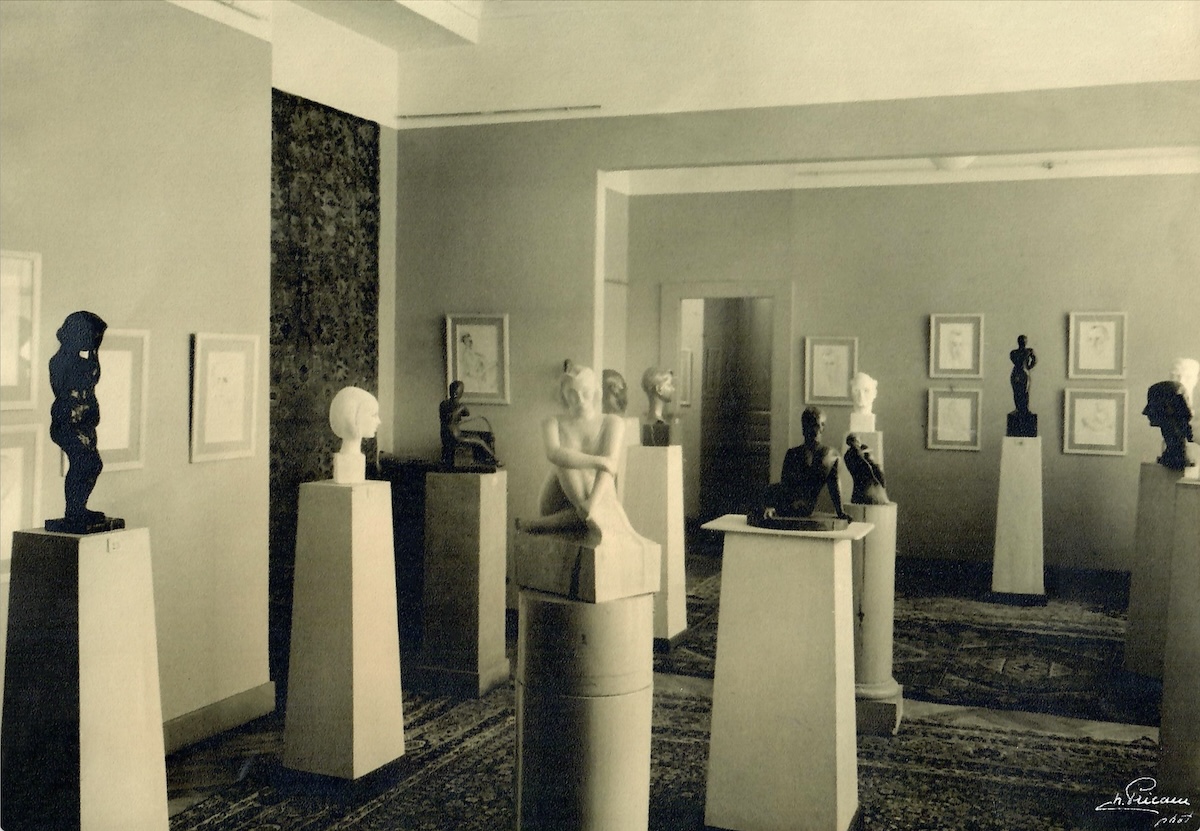
Sculpting a Life: Chana Orloff during Occupation, Escape, Exile, Return (1938-1949)
ONLINE VA, United States
Presentation by Paula J. Birnbaum, San Francisco (CA)This talk analyzes the Ukrainian born French sculptor Chana Orloff’s (1888-1968) perseverance and tremendous sacrifices during World War II, when the Nazis came to her studio, stole much of her work, and brutally vandalized what they left behind. Her tenacity led to her narrow and difficult escape from Paris first to the south of France and then on to Geneva with her young adult son, who was disabled. The presentation explores how Orloff managed her life and career under Nazi Occupation in Paris for two years, when she was among the many French and foreign-born Jews banned from public spaces, forced to observe a curfew and wear the yellow armband with the Star of David and the word “Juif” [...]
Free -
-
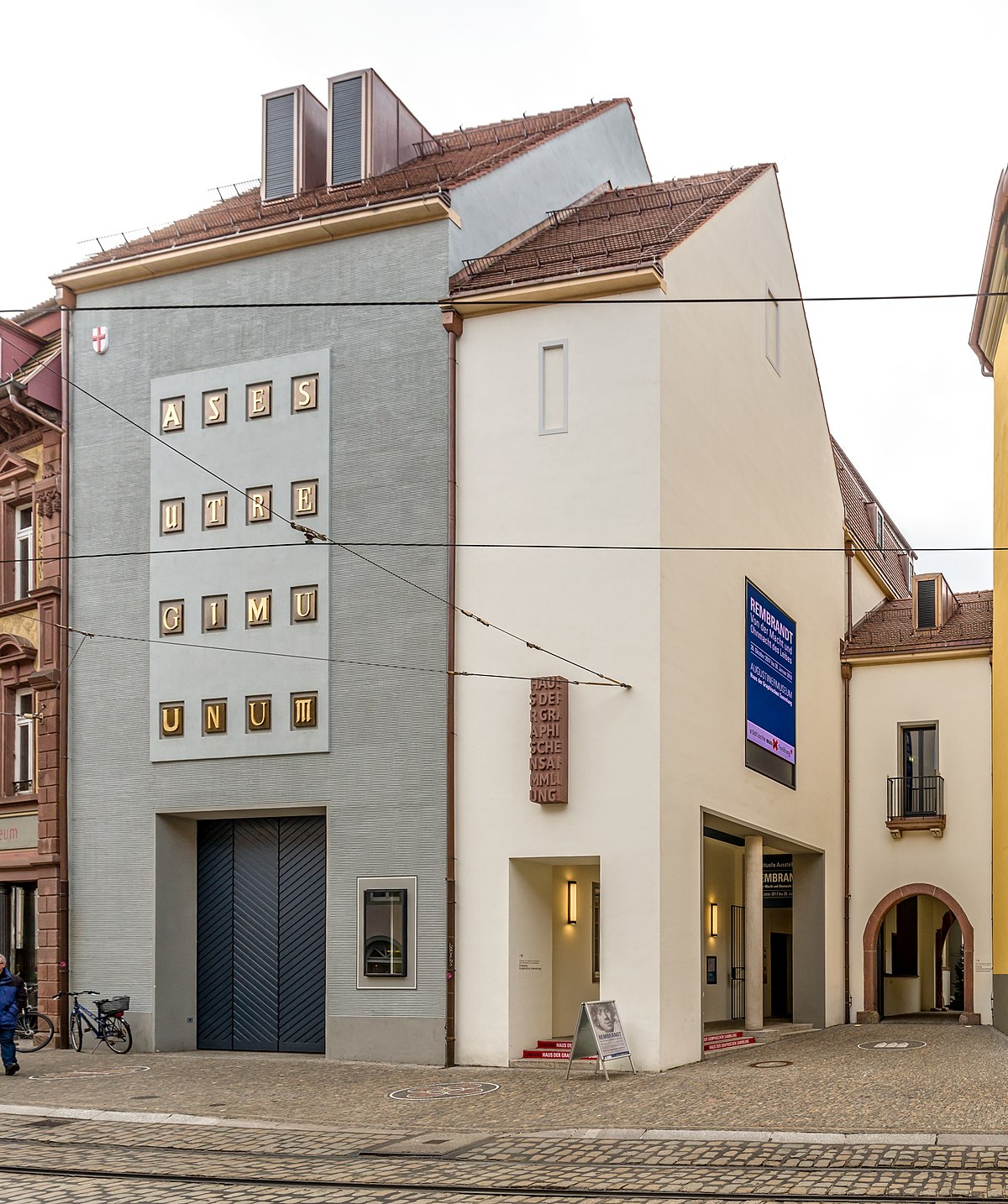
LOVE AND BETRAYAL – The Expressionist Fritz Ascher from New York Private Collections
Haus der Graphischen Sammlung Salzstraße 34, Freiburg im Breisgau, Germany
November 8, 2024 – March 2, 2025
Haus der Graphischen Sammlung, Freiburg, GermanyThe late Expressionist artist Fritz Ascher (1893-1970) survived two world wars and persecution by the National Socialist regime. A close observer of the horrors of World War I and revolutionary unrest, he turned to Christian spiritual themes, which he radically reinterpreted. In intimate drawings, he dealt with the theme of love and betrayal from 1916 onward, both in his exploration of the crucifixion theme and with the figure of Bajazzo in the tragicomic opera "I Pagliacci." Ascher's strong and unique artistic voice is evident not only in his artwork, but also in his poems. These were written when he was no longer allowed to work under National Socialism because of his Jewish roots and as a representative of modernism, [...]
€5.00 -
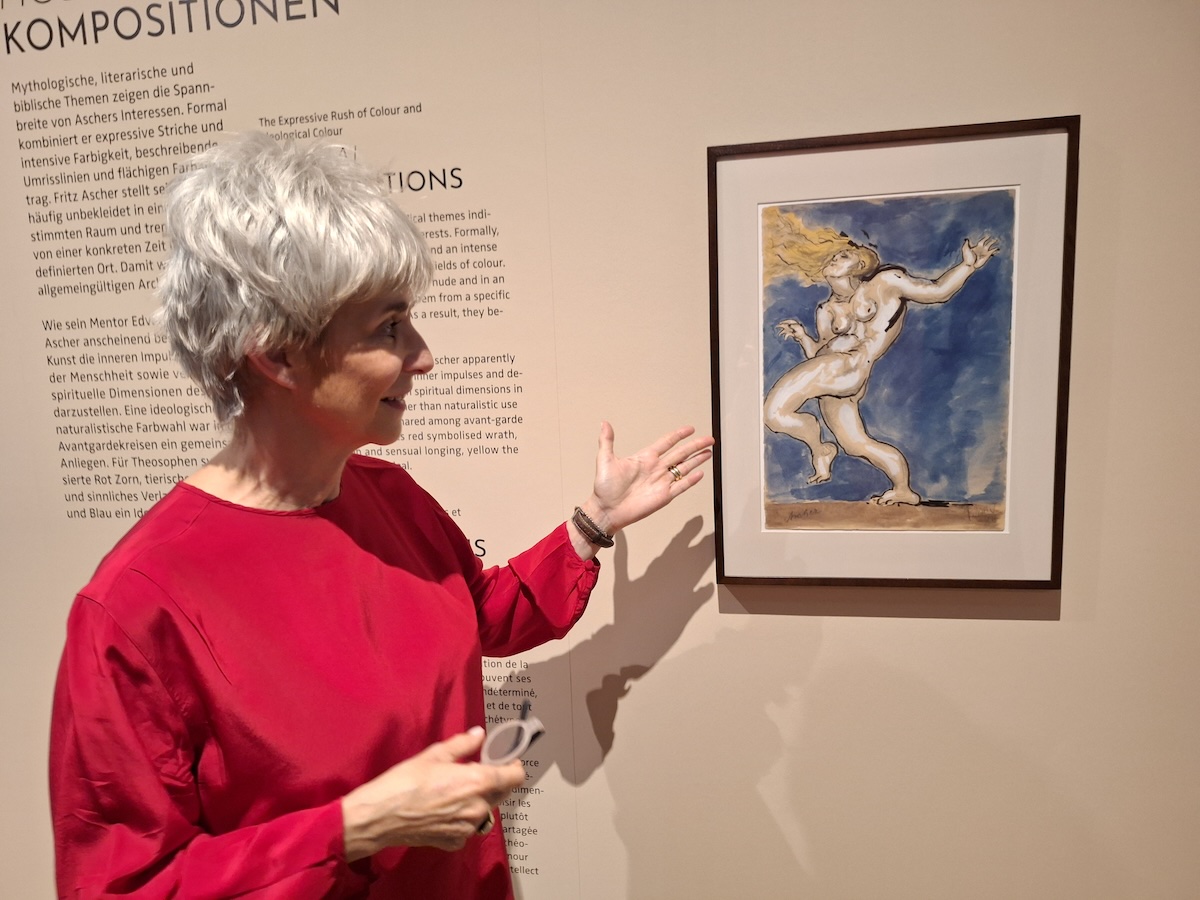
Fritz Ascher in Berlin – eine Spurensuche
Augustinermuseum Augustinerplatz, Freiburg im Breisgau
Kurzvortrag und Führung von Rachel Stern, New York
Augustinermuseum, Haus der Graphischen Sammlung, FreiburgDer spätexpressionistische Künstler Fritz Ascher (1893-1970) überlebte zwei Weltkriege und die Verfolgung durch das nationalsozialistische Regime. Als aufmerksamer Beobachter der Schrecken des Ersten Weltkriegs und der revolutionären Unruhen wandte er sich christlich-spirituellen Themen zu, die er radikal neu interpretierte. In intimen Zeichnungen beschäftigte er sich ab 1916 mit dem Thema Liebe und Verrat, sowohl in seiner Auseinandersetzung mit dem Kreuzigungsthema als auch mit der Figur des Bajazzo in der tragikomischen Oper „I Pagliacci“. Kurzvortrag und Führung von Rachel Stern zeigen den Künstler in seinem sozialen und politischen Umfeld. Image above: Fritz Ascher, Im Wald, um 1919. Weisse Gouache und schwarze Tusche über Aquarell und Bleistift auf Papier, 34 x 32,2 cm © Bianca Stock The late expressionist [...]
$8 -
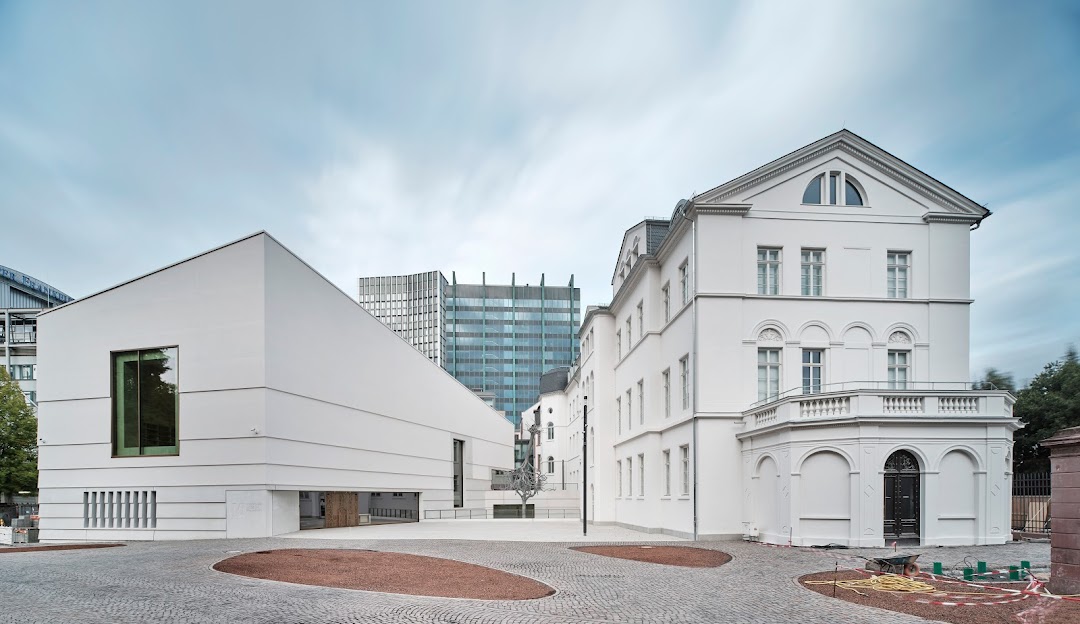
Liebe und Verrat: Fritz Ascher
Jewish Museum Frankfurt Bertha-Pappenheim-Platz 1, Frankfurt am Main, Germany
Kurator Erik Riedel im Gespräch mit Rachel Stern
Jüdisches Museum Frankfurt (Germany)Der Maler, Grafiker und Dichter Fritz Ascher (1893-1970) wurde bereits als 16-Jähriger von Max Liebermann an die Akademie in Königsberg empfohlen. Ab 1913 gehörte er zu den gefragten Malern in Berlin. Er war ein genauer Beobachter seiner Zeit; die Urkatastrophe des Ersten Weltkriegs und die revolutionären Unruhen in Berlin führten ihn zu christlichen und mystischen Themen, die er radikal neu interpretierte. Nach 1933 erhielt Ascher als Jude Berufsverbot. Während der Pogrome am 9./10. November 1938 wurde er verhaftet und im Konzentrationslager Sachsenhausen und im Potsdamer Gestapo-Gefängnis interniert. Die Schoa überlebte er ab 1942 versteckt in einem Keller in Berlin-Grunewald. Während dieser einsamen Jahre verfasste er Gedichte. Als Künstler fand Ascher nach 1945 seinen ganz eigenen Stil. Angeregt vom nahe [...]
$10 -
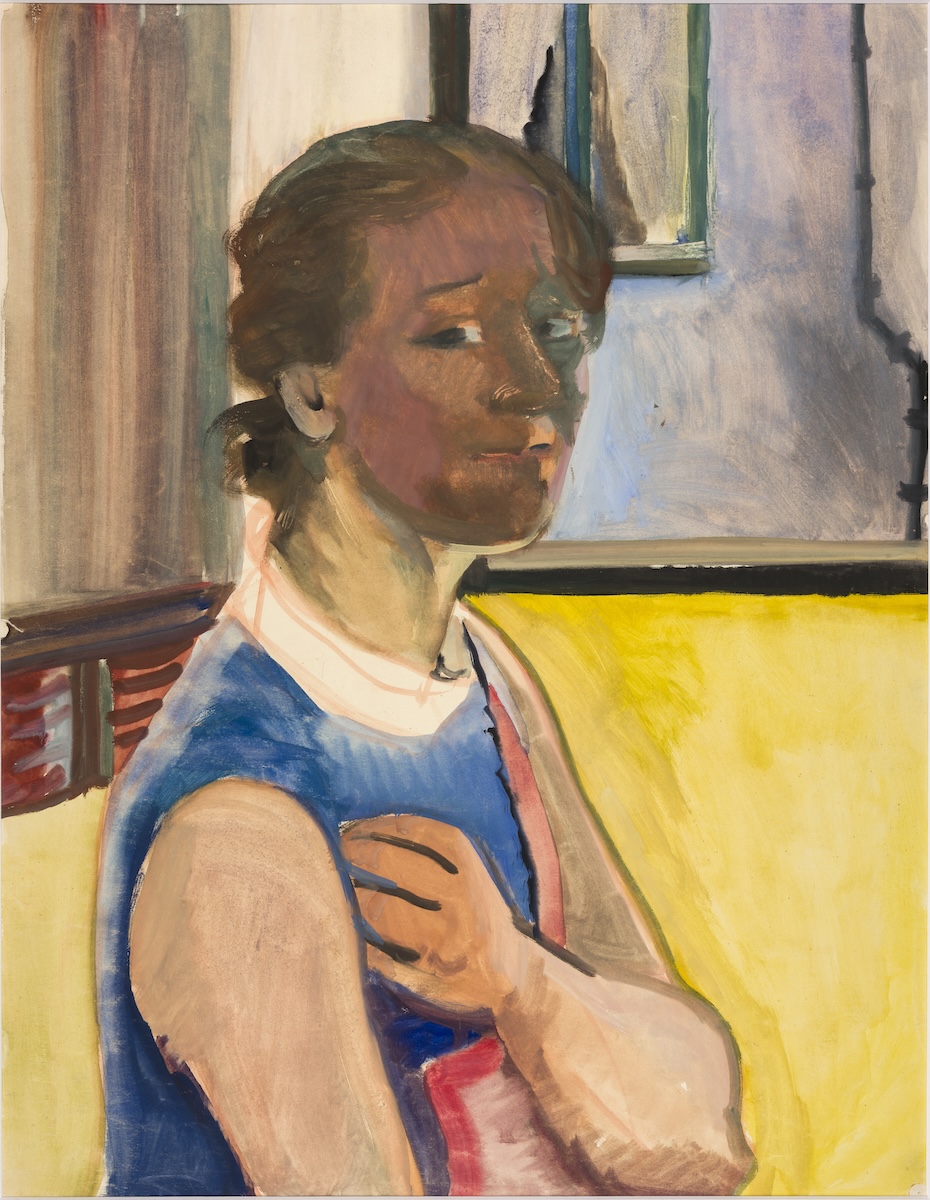
Felka Platek – Artist and Companion of the Painter Felix Nussbaum
ONLINE VA, United States
Presentation by Anne Sibylle Schwetter, Osnabrück (Germany)Felka Platek (1899 Warsaw – 1944 Auschwitz) came to Berlin from Warsaw in the early 1920s to become a painter. In 1932 she followed her friend and later husband Felix Nussbaum (1904 Osnabrück – 1944 Auschwitz) to Italy. In 1935 they decided to go into exile in Belgium. However, neither of them could escape persecution by the Nazis. They were captured in their hiding place in Brussels on June 21, 1944 and murdered in Auschwitz shortly afterwards. Image above: Felka Platek, Self-portrait in front of an open window, around 1940. Gouache on drawing paper, 65 x 49.7 cm. Felix-Nussbaum-Haus at Museumsquartier Osnabrück, on permanent loan from the Felix Nussbaum Foundation, photo © Felix-Nussbaum-Haus Osnabrück Anne [...]
Free -
-
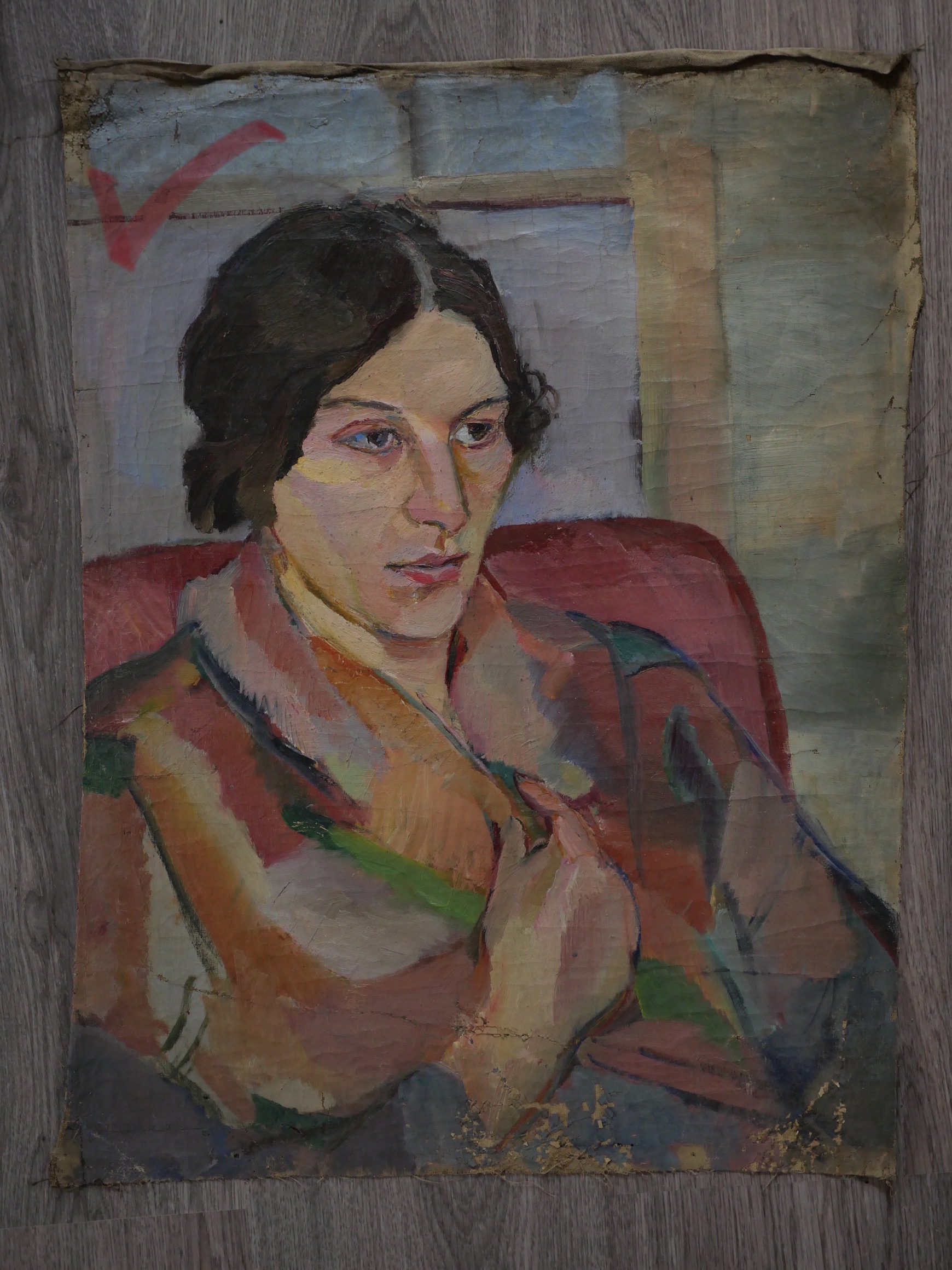
Gertrud Kauders, Jewish Artist from Prague (1883-1942):
ONLINE VA, United States
Surprises, Enigmas, Opportunities
Presentation by Simon During, Brisbane (Australia)While workmen were demolishing a house on Prague’s outskirts in July 2018 they were astonished to be deluged by works of art falling from a ceiling. Nobody knew the works had been hidden there. The art turned out to be that of Gertrud Kauders who had hidden them in the house of a friend before being deported to Theresienstadt and then to Majdanek where she was murdered on arrival in May 1942. Kauders was a serious and inventive artist, quite well known in Prague’s art world of the time. She worked in oils, pencil, crayon, watercolour and gouache. Now her work is held by museums around the world. Image above: Gertrud Kauders © Kauders Family Estate [...]
Free -
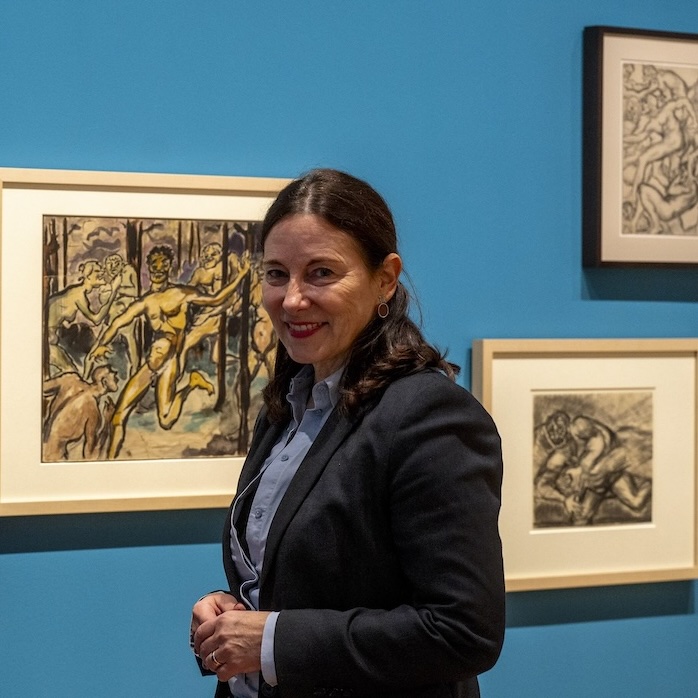
Love, Betrayal and Ascher’s Unpainted Pictures
Haus der Graphischen Sammlung Salzstraße 34, Freiburg im Breisgau, Germany
Tour by Exhibition Curator Jutta Götzmann
Haus der Graphischen Sammlung, Freiburg (Germany)Jutta Götzmann, exhibition curator of "Love and Betrayal," presents the artist Fritz Ascher (1893-1970) during a tour. In addition to early charcoal, graphite and ink drawings, colorful gouaches are fascinating. Poems that are considered his "unpainted pictures" and were created in secret during the National Socialist era complement the exhibition. BUY TICKETS HERE The Fritz Ascher Society is a not-for-profit 501(c)3 organization. Your donation is fully tax deductible. YOUR SUPPORT MAKES OUR WORK POSSIBLE. THANK YOU. DONATE HERE
$2.50 -
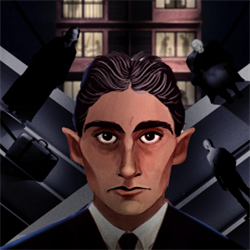
World Premiere: Kafka’s Last Trial
Marlene Meyerson JCC Manhattan 334 Amsterdam Ave, New York, NY, United States
Screening at Marlene Meyerson JCC ManhattanScreening followed by Q+A with director Eliran Peled, writer Daphne Merkin, and author Benjamin Balint. Film and screening offered in partnership with the New York Jewish Week. Co-sponsored by Fritz Ascher Society for Persecuted, Ostracized and Banned Art. Upon his death in 1924, the great Czech-Austrian novelist Franz Kafka left behind a rich collection of unpublished manuscripts, with instructions to his friend Max Brod to burn them all. Thanks to Brod’s failure to fulfill Kafka’s wishes, the world has come to know one of the great writers of the 20th century. Now, 100 years after his death, the film “Kafka’s Last Trial” tells the story of this altruistic betrayal and the multi-generational effort to preserve Kafka’s literary legacy. Based on the [...]
$36.00 -

Behind the Glass: The Villa Tugendhat and Its Family
ONLINE VA, United States
A book talk by Michael Lambek, Toronto (Canada)In this book talk, Michael Lambek follows the intertwined history of Mies van der Rohe’s iconic Villa Tugendhat and the family who inhabited it from 1930-1938. Part memoir, part social history, the book traces the family from its origins in a Jewish ghetto to the present day, focussing on the author’s maternal grandmother, Grete Tugendhat who commissioned and championed the house, which is now a World Heritage Site in Brno, Czechia. Image above: Ludwig Mies van der Rohe, Villa Tugendhat, Brno (Czechia), photo David Zidlicky The Villa Tugendhat, designed by Mies van der Rohe in 1929, is an icon of architectural modernism in Brno, Czechia. It was also a family home. Centring my account on my remarkable maternal grandmother, Grete [...]
Free
2025-12-22T00:00:00-05:00
10 events found.


